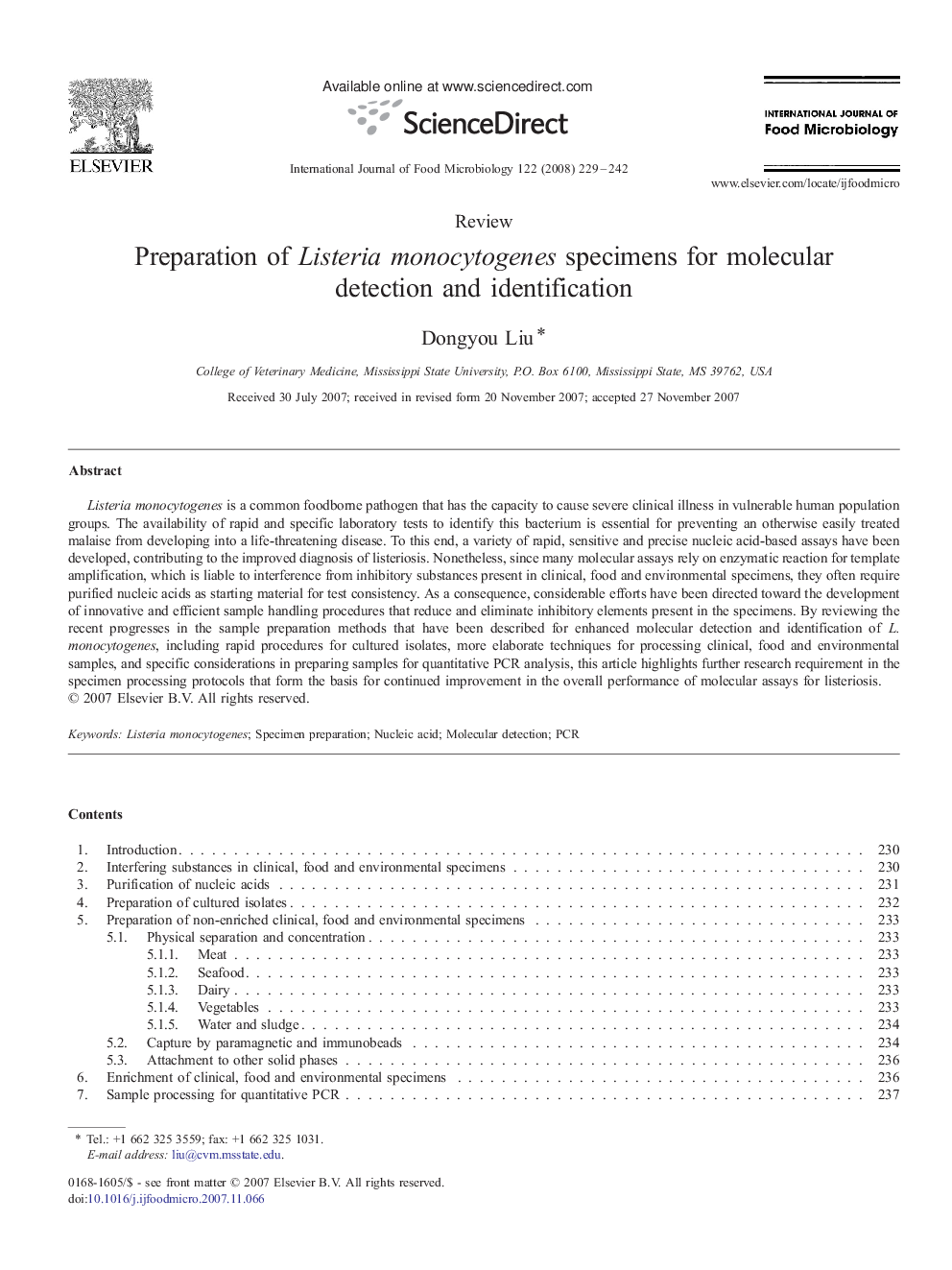| Article ID | Journal | Published Year | Pages | File Type |
|---|---|---|---|---|
| 4368774 | International Journal of Food Microbiology | 2008 | 14 Pages |
Listeria monocytogenes is a common foodborne pathogen that has the capacity to cause severe clinical illness in vulnerable human population groups. The availability of rapid and specific laboratory tests to identify this bacterium is essential for preventing an otherwise easily treated malaise from developing into a life-threatening disease. To this end, a variety of rapid, sensitive and precise nucleic acid-based assays have been developed, contributing to the improved diagnosis of listeriosis. Nonetheless, since many molecular assays rely on enzymatic reaction for template amplification, which is liable to interference from inhibitory substances present in clinical, food and environmental specimens, they often require purified nucleic acids as starting material for test consistency. As a consequence, considerable efforts have been directed toward the development of innovative and efficient sample handling procedures that reduce and eliminate inhibitory elements present in the specimens. By reviewing the recent progresses in the sample preparation methods that have been described for enhanced molecular detection and identification of L. monocytogenes, including rapid procedures for cultured isolates, more elaborate techniques for processing clinical, food and environmental samples, and specific considerations in preparing samples for quantitative PCR analysis, this article highlights further research requirement in the specimen processing protocols that form the basis for continued improvement in the overall performance of molecular assays for listeriosis.
